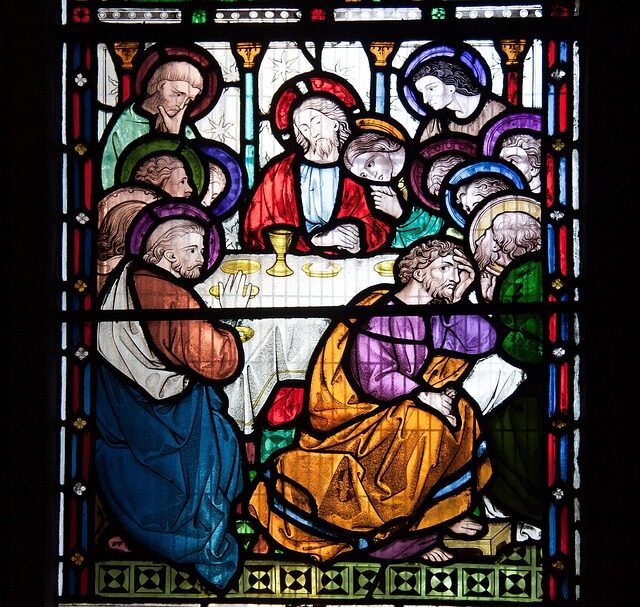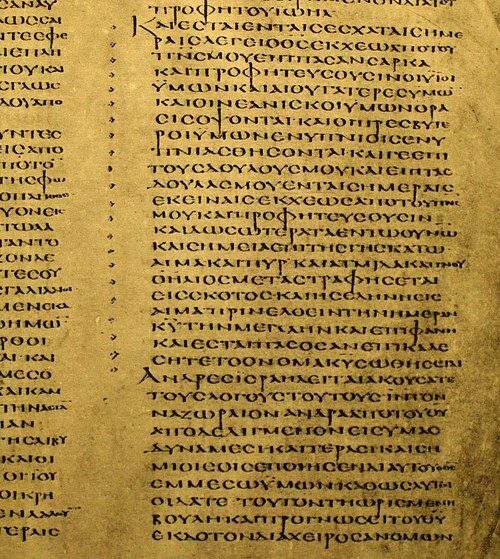The Church of Antioch is of great importance in the origin of the Christian communities because of its openness and welcome to the gentiles. Moreover, the evangelizing project initiated by Paul and Barnabas has its beginning in this community. Luke is interested in underlining the links of this Church, which will carry out the evangelization of the Gentile world, with the mother Church of Jerusalem, since it was founded by Hellenists coming from Jerusalem and, on the other hand, its formation counts on their approval and communion through Barnabas.
Antioch of Syria -nowadays the city of Antakya, in Turkey- is also known as Antioch of the Orontes, for being next to this river, 32 kms from the Mediterranean. It was founded by Antiochus, one of Alexander the Great’s generals, in 301 B.C., as the capital of the Seleucid kingdom, and is named after his wife. During the reign of the Seleucids (1st-4th centuries BC), Palestine belonged to Syria and this explains the migration of many Jews to various cities of the kingdom, such as Antioch (cf. F. Josephus, Bellum 1,425; Antiq 16.148).
Moreover, together with Alexandria in Egypt, it was one of the most important centers of the Hellenization of Palestine. In Acts 6:5, Nicholas, a proselyte of Antioch, is mentioned as one of the seven chosen for the service of the tables. From the sociological point of view, Antioch was to replace Jerusalem as the Christian center, especially after the destruction of the Jewish capital.
Origin of the Church of Antioch (Acts 11:19-26)
The Hellenistic Christians, persecuted after the death of Stephen (cf. Acts 8:1,4), disperse and, in their journey, preach the Good News outside Palestine, in Phoenicia, Cyprus and Syrian Antioch. The fact is important, because it supposes that the Gospel begins to leave the borders of Israel.
They go preaching in the synagogues and only to the existing Jews in these regions. But a group of Hellenists, natives of Cyrene (North Africa) and the island of Cyprus, upon arriving in Antioch, also preach to the Gentiles, that is, to the Greeks. When they address the Jews, who expect a Messiah, it is announced to them that Jesus of Nazareth is that Messiah; but when they do it to the Gentiles, who did not have this hope, it is announced to them the true Lord(Kyrios), who is Jesus.
The announcement is confirmed by miracles, for “the hand of the Lord was with them”, and this will be the reason why a great number of Gentiles believed and converted to the Lord Jesus who had been announced to them.
Thus was born a mixed community was born, made up of Jews and Greeks, open, enthusiasticIt is an open, enthusiastic community that wants to respond to the mission entrusted to it by the Lord. A welcoming community, working in synodality and respecting the different origins, backgrounds, languages and cultures.
 Faced with this novelty, the mother Church of Jerusalem, presided over by James, the Lord’s brother, sent Barnabas to discern the step taken in evangelization and the admission of Greeks to the following of Jesus. Barnabas was amazed to see the grace of God in the community and in the lives of the new disciples. Hence his joy and exhortation to all to persevere in the service of the Lord.
Faced with this novelty, the mother Church of Jerusalem, presided over by James, the Lord’s brother, sent Barnabas to discern the step taken in evangelization and the admission of Greeks to the following of Jesus. Barnabas was amazed to see the grace of God in the community and in the lives of the new disciples. Hence his joy and exhortation to all to persevere in the service of the Lord.
Acts ends with praise for Barnabas: “for he was a good man, full of the Holy Spirit and of faith. Earlier it was said that he sold his field and put the money at the disposal of the apostles (Acts 4:36f), and later that he helped Saul to be well received in Jerusalem (Acts 9:27).
Communion with the Church of Jerusalem
The mother Church of Jerusalem appears with an awareness of responsibility for the Christian movement, approves the initiative and admits the new community into its communion. The conclusion of the testimony, that is, of the preaching and life of the believers, is that “a considerable multitude adhered to the Lord”: to be a disciple is to accept Jesus as Lord and to unite oneself existentially to Him.
Faced with this new reality, Barnabas sought out Saul in Tarsus (cf. Acts 9:30) to help him, taking him to Antioch. Possibly he remembered his ability to address the Hellenists (cf. 9:29). For Saul, this invitation was a good opportunity to fulfill his vocation among the Gentiles.
Thus the first missionary work was carried out together by those who would later take part in the mission to the Gentile world: they spent a year working in this Church and taught many people.
As a result, the number of believers, who are now beginning to be called Christians, is growing. Christiansto distinguish them from other groups. This term implies that at that time the word Christ was already understood not only as a title of office (the promised Messiah), but also as a proper name of a person. The Greco-Latin adjective “Christians” spread very early, for it is known from Flavius Josephus(Antiq 18,3 §64) and from 1 Pt 4,15-16:
“So then, let none of you have to suffer because he is a murderer, a thief, an evildoer, or a busybody; but if it is because he is a Christian, let him not be ashamed, but let him give glory to God for this name’s sake.”
The story is interesting because it shows that the initiative of the Christian movement soon opens up to realities beyond the Jewish world. The Christian community takes significant steps towards evangelization, while the mother Church of Jerusalem discerns the authenticity of this step, using the Gospel criterion: “by their fruits you will know them” (Lk 6:43f; Mt 7:16-20).
The Spirit acts in all the members of the people of God: He makes us free and daring to take the Gospel to the ends of humanity, but it is necessary to discern its authenticity, that is, if it comes from the same feeling of God.
Carmen Román Martínez, OP
(Published in Santa Rita y el Pueblo Cristiano Magazine)


